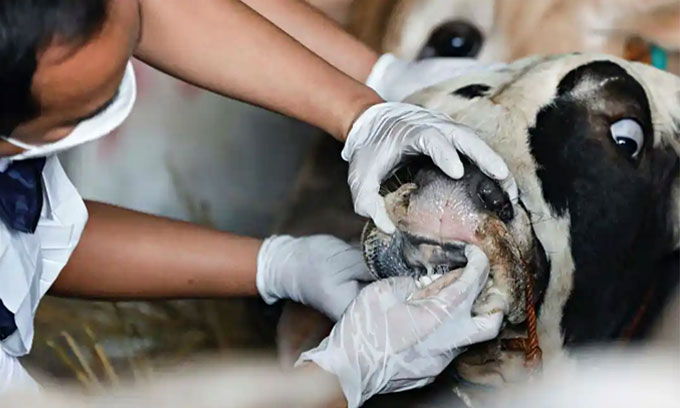(UTV | INDONESIA) – When dairy farmer Bagoes Cahyo noticed saliva pouring from the mouths of his cows, his heart sank.
Cahyo immediately suspected that his 70-strong herd of Friesian Holstein milkers were the latest victims of a vicious outbreak of foot and mouth disease that has swept Indonesia since May.
Within days, lesions and sores appeared around the cows’ mouths and noses. By the end of the week, all 70 of his herd were sick.
“When they got sick, their milk production drastically declined to about 10 percent,” Cahyo, who is based in the city of Malang, East Java, told.
Stricken by illness, the cows struggled to eat, Cahyo said, drastically affecting their usual milk supply of 15 liters (4 gallons) per animal per day.
Even if their milk had been plentiful, Cahyo would not have been able to sell it, as his cows had to be put on antibiotics to aid their recovery.
Indonesia is currently in the grip of its first major outbreak of foot and mouth disease (FMD) in nearly 40 years. The Southeast Asian country successfully eradicated the virus behind the disease in 1986 and was declared FMD-free by the World Organization for Animal Health in 1990.
The disease affects hoofed animals such as cows, sheep, goats, pigs and deer, and is highly contagious.
Since May, more than 300,000 cases have been recorded across 21 provinces, prompting the Indonesian government to roll out a vaccine program aimed at inoculating healthy cattle against the disease.
“This is the most feared disease in the world for the livestock industry,” Deddy Kurniawan, the head of the East Java II Indonesian Veterinary Association, told. “No other virus is so horrific both economically and socially.”
Kurniawan said one of the reasons the virus is so ferocious is that it spreads quickly, causing symptoms within two to four days of infection, and can be passed easily in saliva, droplets, faeces, and milk and meat products.

